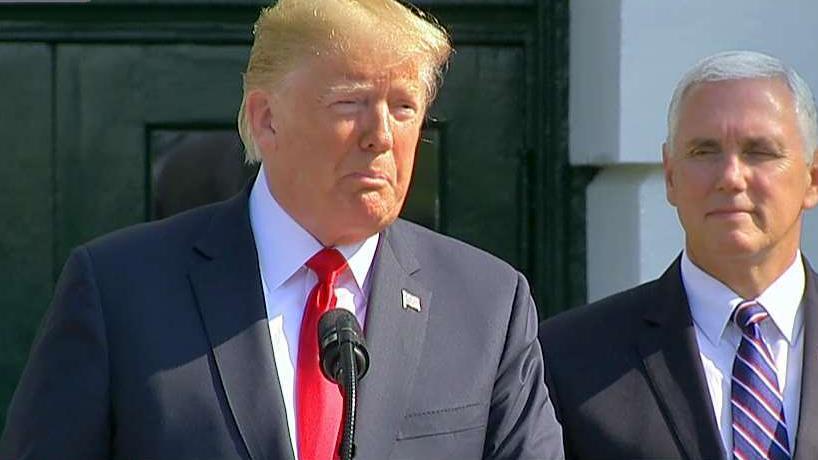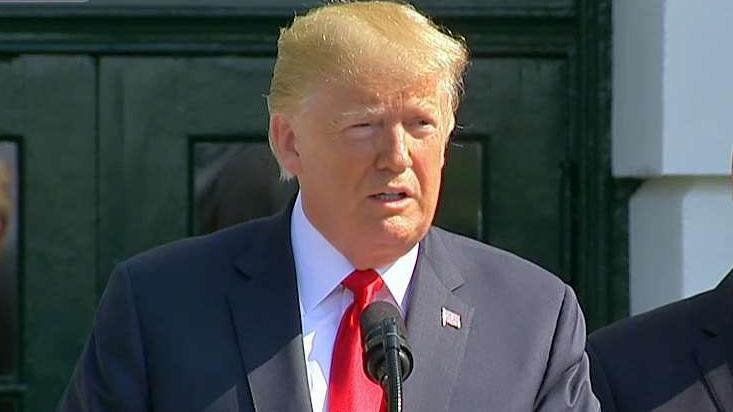Trump takes victory lap on big GDP report
President Trump claimed credit on Friday for the growth of the U.S. economy in the second quarter, which advanced by the fastest pace since 2014.
Gross domestic product (GDP) jumped to 4.1%, according to the Department of Commerce, compared to last quarter’s 2.2%. Analysts called it a “Goldilocks number,” driven largely by a strong consumer, according to Cliff Hodge, the director of investments for Cornerstone Wealth.
“This is a win for the administration and a win for the markets,” Hodge said via email.
Trump took it as just that in a press conference on the South Lawn of the White House: He attributed the growth to the 2017 Tax Cuts and Jobs Act, worth $1.5 trillion, as well as the ongoing trade negotiations with China and the European Union.
The president agreed on Wednesday to work toward “zero-tariffs, zero non-tariff barriers and zero subsidies on non-auto industrial goods” agreement with the EU, but trade disputes with China still remain. Already, Trump said, the trade deficit has been reduced by more than $50 billion.
“These numbers are very, very sustainable,” Trump said. “This isn’t a one-time shot. I happen to think we’re going to do extraordinarily well in our next report next quarter. I think it’s going to be outstanding.”
The last time quarterly growth was above 4% was during the third-quarter of 2014, when it hit 5.2% under President Barack Obama. But according to Hodge, had the GDP growth surpassed 5%, it could have forced the Federal Reserve to impose additional interest rate hikes. Instead, the central bank will likely be able to “stay the course” on monetary policy, he said.
“We’ve accomplished an economic turnaround of historic proportions,” Trump said.
That economic turnaround could hand Republicans a powerful talking point during the midterm elections in November.
The unemployment rate is currently 4.1%, one of its lowest rates in years, which Trump took note of during his press conference, during which he touted falling unemployment rates for African-Americans, Hispanics and women, as well as the increase in manufacturing jobs.
“We are the economic envy of the world,” he said.





















